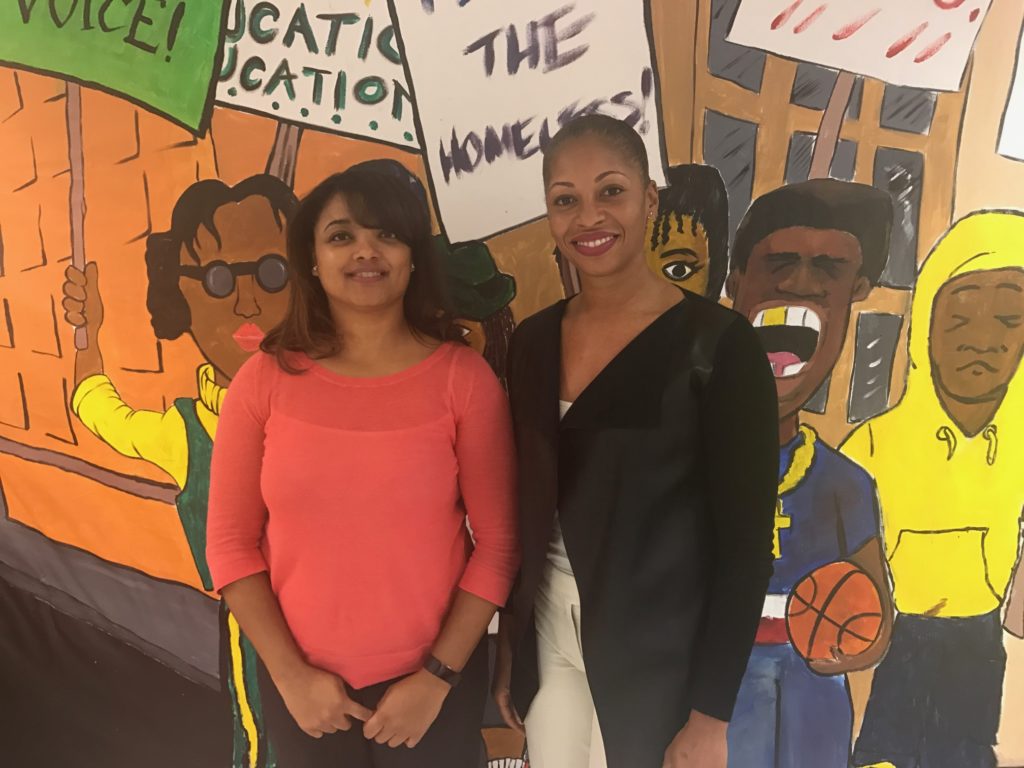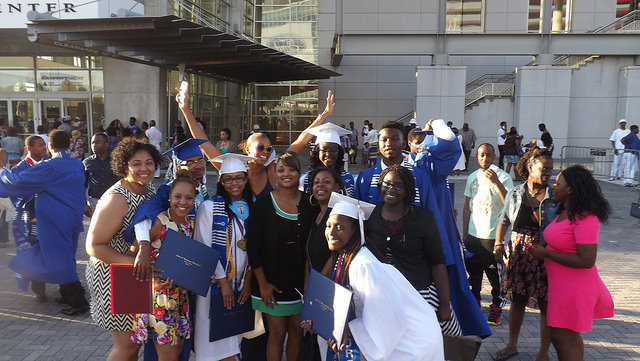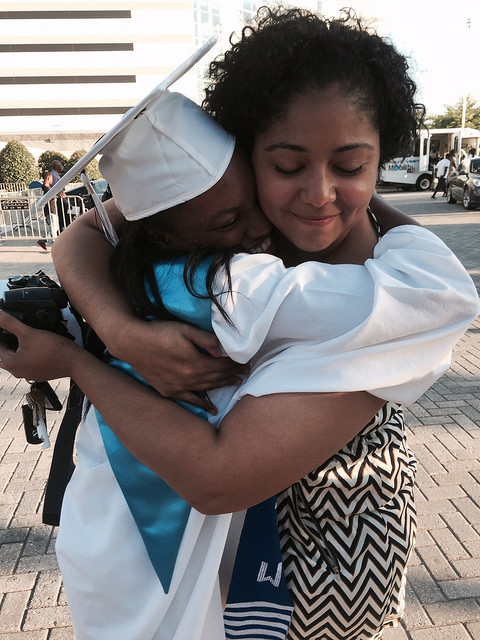March 17 Summit Preview: Raising Expectations’ Community Youth Panel
As the old saying goes, it takes a village to raise a child.
No one knows that better than Raising Expectations (RE) co-founders Tangee Allen and Maria Armstrong. Their Westside-based nonprofit has helped “raise” more than 2,000 children in their more than two decades of service.
The Raising Expectations story began when Maria and Tangee, then college students at Georgia State University, engaged in a conversation about the African American community and its struggles, and as a result, decided to use their extra time away from school to start volunteering to tutor students from low wealth communities.
Twenty years later, their work continues. The organization now provides impactful youth development programming for youth in Atlanta communities that include Decatur, East Lake, Pittsburgh as well as the Westside’s Vine City, English Avenue and Washington Park.
It is unique among out-of-school time (OST) programs in that it is longitudinal in its relationship with students. Students can begin their relationship with Raising Expectations as young as third grade and continue as they matriculate through middle and high school and embark upon their post-secondary plans.
At our March 17 Summit, RE will present nine of their incredible young people, who will share their perspectives on the revitalization of their beloved community.
Read below as Maria and Tangee (pictured from left to right below) talk about the upcoming panel and their inspiring work on the Westside.

How long has Raising Expectations been doing work on the Westside? How did the relationship with the community come about?
Tangee: We transitioned to the Westside in 2004. At the time, Magnolia Park Apartments [in the AUC community] was managed by the same company that managed The Villages of East Lake, where our work was heavily focused at the time. The social services director for the Villages knew about our work on the Eastside and shared our story with the Westside social services director. In partnership with the Vine City Civic Association, they asked us to transition our program to the Westside. It was a good fit for us because the East Lake Community Foundation had done a really good job in identifying partners and creating a web of support for the children on the Eastside, and we wanted to stay connected and true to our mission of working with under-resourced communities and children.
We started in Magnolia Park Apartments in a community center, transitioned to the New Horizons Senior Center on Orr Street and ultimately ended up in the Kennedy Middle School footprint. We like to say we are a part of the foundation. We are one of the things that’s been really consistent as it relates to this particular footprint.
What role do you believe education plays in the revitalization of a community?
Maria: We definitely see education as one leg of a three-legged stool. Economic opportunities and housing, to us, are the three factors that are critical and necessary for communities to turn themselves around. Education is definitely at the core, but if you don’t have economic opportunities and housing then all of it can easily fall apart for the very families who need those resources the most.
For us, it’s a scenario where it all has to work together. All of those systems have to be put online at the same time for it to really make the type of impact that allows families, who are coming from low wealth households, to have the benefit and opportunities to stay in a community that is being revitalized and improved.
How did the idea for the Youth Education panel come about and what should attendees expect?
Tangee: Atlanta City Councilmember Andre Dickens attended a December Transform Westside Summit, and one of the things he shared with Dan Cathy and John Ahmann was that, while we’ve done a really good job talking about some of the plans and the vision for the Westside, he was really interested in hearing from the community.
‘What do the young people feel about the development efforts?’
‘Are there things we need to consider as we move forward and develop policy?’
To graduating seniors, ‘are there things you would have loved to experience that would have made that transition from high school to college easier for you?’
‘Are there pain points or pressure points from your parents or grandparents about the development efforts?’
We want them to come and share this with us so we can have a frank conversation about the feelings of the community around things that have already been institutionalized as part of our development efforts.
He reached out to Maria and I, as he knows we work with children on the Westside, and asked if we could get a cadre of young people to come out and speak to those particular questions.
Who will be on the panel?
Maria: All of our babies! We’ll have about 6-9 of our students on the panel. All are either current or former Washington High School students, including a couple of our former students who now attend Morehouse, Spelman and Georgia State. These are young people who have lived in this community for years. I think it’s going to be a really great conversation and a great opportunity for people to hear from the young people who are really being impacted by what’s happening in the community. And then hear, from their perspective, what really hasn’t happened in the past that impacted their ability to be successful.
What do you hope attendees take away from the presentation?
Tangee: I want the attendees to understand we have a lot of diamonds on the Westside. And a lot of undeveloped potential. Sometimes it feels like that’s not what’s necessarily lifted in the conversation. We want people to take a moment and really get a sense of what’s going on on the Westside and recognize the natural resources that are already here.
Lift up those partnerships that are preexisting. Lift up those service organizations that have been doing the hard work for many, many years now. Lift up the families who want to be a part of the process. They enjoy the idea of no longer living in a food desert. They enjoy the idea of coming out of their high school and not contending with gang activity. They want to be a part of this experience post development efforts. They want to be a part of the conversation. People are looking to have their seat at the table. We believe the time is now to rewrite what development efforts could potentially look like.
Of your 20+ years of service, what are you most proud of?


What is your hope for the Westside?
Maria Armstrong’s Hope for the Westside:
Tangee Allen’s Hope for the Westside
For more information on the Raising Expectations’ Community Youth Panel, click here. For more information on Raising Expectations, visit their website at www.raisingexpectations.org.
